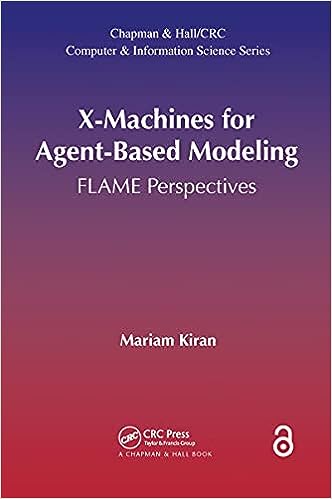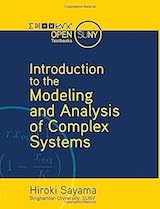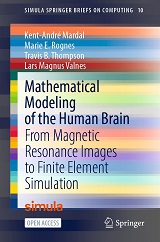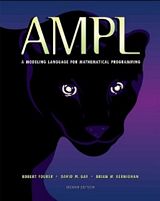
|
FreeComputerBooks.com
Links to Free Computer, Mathematics, Technical Books all over the World
|
|
- Title: X-Machines for Agent-Based Modeling: FLAME Perspectives
- Author(s) Mariam Kiran
- Publisher: Chapman and Hall/CRC; 1st edition (2020); eBook (Creative Commons Licensed)
- License(s): Creative Commons License (CC)
- Hardcover: 300 pages
- eBook: PDF (329 pages, 4.6 MB) and Read Online
- Language: English
- ISBN-10: 0367573156
- ISBN-13: 978-0367573157
- Share This:

|
This book contains a comprehensive summary of the field, covers the basics of FLAME, and shows how concepts of X-Machines, can be stretched across multiple fields to produce Agent-Based Models. It exemplifies one of the most successful approaches to modeling and simulating [the] new generation of complex systems.
About the Authors- Dr. Mariam Kiran is a well-recognized researcher in agent-based modeling, high performance simulations and cloud computing.
- Computational Simulations and Modeling
- Robotics and Robot Programming
- Operating Systems Design and Construction
- Embedded Systems Programming
- Electronic and Computer Engineering

- X-Machines for Agent-Based Modeling (Mariam Kiran)
- The Mirror Site (1) - PDF
- The Mirror Site (2) - PDF
-
 Introduction to the Modeling and Analysis of Complex Systems
Introduction to the Modeling and Analysis of Complex Systems
This textbook offers an accessible yet technically-oriented introduction to the modeling and analysis of complex systems. Complex systems are systems made of a large number of microscopic components interacting with each other in nontrivial ways.
-
 Modeling and Simulation in Python (Allen B. Downey)
Modeling and Simulation in Python (Allen B. Downey)
This book is an introduction to physical modeling using a computational approach with Python. You will learn how to use Python to accomplish many common scientific computing tasks: importing, exporting, and visualizing data; numerical analysis; etc.
-
 Playful Machine: Theoretical and Practical Self-Organizing Robots
Playful Machine: Theoretical and Practical Self-Organizing Robots
The book develops guided self-organization, a new method that helps to make the playful machines fit for fulfilling tasks in the real world. It comes with a robotics simulator inviting also the non-scientific reader to simply enjoy the fabulous world of playful machines.
-
 Mathematical Modeling of the Human Brain
Mathematical Modeling of the Human Brain
The book bridges common tools in medical imaging and neuroscience with the numerical solution of brain modelling PDEs, covers the basics of magnetic resonance imaging and quickly proceed to generating first FEniCS brain meshes from T1-weighted images.
-
 Modelling and Simulation for Big Data Applications
Modelling and Simulation for Big Data Applications
Long considered important pillars of the scientific method, Modelling and Simulation have evolved from traditional discrete numerical methods to complex data-intensive continuous analytical optimisations.
-
 AMPL: A Modeling Language for Mathematical Programming
AMPL: A Modeling Language for Mathematical Programming
This book is a complete guide to AMPL for modelers at all levels of experience. It begins with a tutorial on widely used linear programming models, and presents all of AMPL's features for linear programming with extensive examples.
-
 Modeling Reactive Systems With Statecharts (David Harel)
Modeling Reactive Systems With Statecharts (David Harel)
The book provides a detailed description of a set of languages for modelling reactive systems, which underlies the STATEMATE toolset. The approach is dominated by the language of Statecharts, used to describe behavior and activities.
-
 A Gentle Introduction to Numerical Simulations with Python
A Gentle Introduction to Numerical Simulations with Python
This book outlines the shortest possible path from no previous experience with programming to a set of skills that allows students to write simple programs for solving common mathematical problems with numerical methods in the context.
-
 Modeling Creativity - Case Studies in Python (Tom De Smedt)
Modeling Creativity - Case Studies in Python (Tom De Smedt)
This book is to model creativity using computational approaches in Python. The aim is to construct computer models that exhibit creativity in an artistic context, that is, that are capable of generating or evaluating an artwork (visual or linguistic), etc.
-
 Computer Simulation Techniques - The Definitive Introduction
Computer Simulation Techniques - The Definitive Introduction
This book addresses all the important aspects of a computer simulation study, including modeling, simulation languages, validation, input probability distribution, and analysis of simulation output data.
-
 Foundations of Machine Learning (Mehryar Mohri, et al)
Foundations of Machine Learning (Mehryar Mohri, et al)
This book is a general introduction to machine learning. It covers fundamental modern topics in machine learning while providing the theoretical basis and conceptual tools needed for the discussion and justification of algorithms.
-
 Machine Learning Yearning (Andrew Ng)
Machine Learning Yearning (Andrew Ng)
You will learn how to align on ML strategies in a team setting, as well as how to set up development (dev) sets and test sets. After finishing this book, you will have a deep understanding of how to set technical direction for a machine learning project.
-
 Understanding Machine Learning: From Theory to Algorithms
Understanding Machine Learning: From Theory to Algorithms
Explains the principles behind the automated learning approach and the considerations underlying its usage. Provides an extensive theoretical account of the fundamental ideas underlying machine learning and the mathematical derivations.





